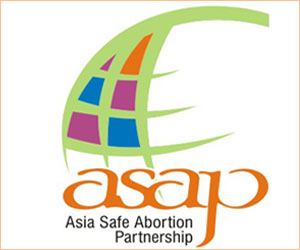Do laws criminalizing abortion for any reason deny a girl or a woman her right to access safe abortion and instead push her to resort to unsafe abortion thereby endangering her life?

Row over Sex Selection: The primary reason for the current agitation in India over abortion is sex-selection, which is a symptom of gender discrimination. Preference shown to male children, and the aversion shown to female children, spring from the resulting misogyny. Banning the termination of pregnancy is not a solution to reduce sex selective abortion. A lot more has to be done to make girls and women well accepted in societies that deny them their rightful place. The interest that sparked in enforcing strict laws against sex-selective abortion is mostly not out of appreciation for girls and women, but propaganda solely driven by the imbalance in the ratio of men and women. To maintain gender balance, laws against abuse of girls and women should get stricter and people should be educated about the importance of the most neglected and abused human resources. It is important to remember that most women seeking abortion have other reasons and not sex selection. Criminalization of abortion only forces women to seek illegal and unsafe methods to abort their pregnancy.
Unsafe Abortion: Lack of awareness on access to safe medical procedures and fear of stringent laws interfering with a woman’s reproductive right has caused many girls and women to use sharp instruments or even throw blows on their stomachs to terminate pregnancies. Married women actually constitute the majority of women desperate for an abortion, and often travel to neighboring cities to get the procedure done. Unsafe abortions have been fatal in many cases which is why the Shantilal Commission was established in 1961 and the following Medical Termination of Pregnancy Act (MTP Act) was passed in 1971 by the Indian Parliament. As long as abortion remains severely restricted, girls and women will continue to fall prey to unsafe means to terminate pregnancies.
Safe Abortion: Access to safe abortion ensures girls and women get pre- and post- abortion care in a well equipped medical facility. Women have the right to choose if and when they want to have children, because it is they who have to undergo physical, mental and psychological changes, and endure pain whether the pregnancy is sustained or terminated. Unsafe abortions leave a woman facing long term adverse effects and even fatal complications which are almost negligible with safe abortions. In emotionally charged societies guilt, remorse, lack of confidentiality and privacy are intense. Hence Ministry of Health, medical facilities and health care professionals must be sensitized to treat safe abortion with open-mindedness and utmost sensitivity.
Safe Abortion for the reasons justified by a woman who wants it for herself, is a desperate cry for help. Society should ensure safe abortion respecting a woman’s need to assert her reproductive right, her desire to have control over her body and thus her life.
Resources:
- Dr. Suchitra Dalvie MD MRCOG, of Asia Safe Abortion Partnership (ASAP)
- Dr. Shweta Krishnan MBBS, MS Science Journalism
- Safe Abortion: Technical and Policy Guidance for Health Systems
Source-Medindia













